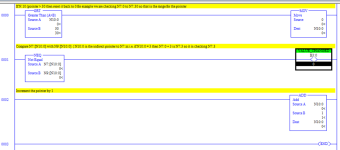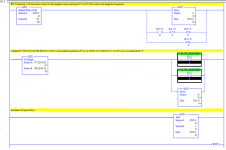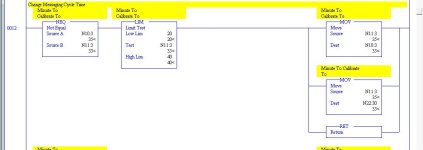eight_bools
Lifetime Supporting Member
OP
Use indirect addressing with a pointer to iterate through. eg NEQ N7:[N10:0] N9:[N10:0] Increment the pointer each cycle; just make sure to reset it before it goes past the size of your files being compared.
Then use an FFL or equivalent to store the current value of the pointer and a timestamp whenever the rung evaluates true.
I like this idea, however have never used indirect addressing. I found some videos online but they were all for RSLogix 5000 instead of 500







